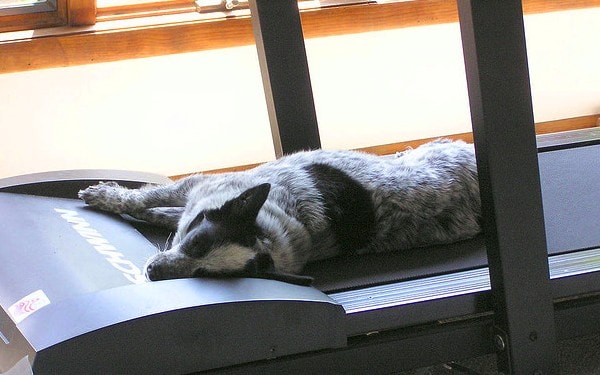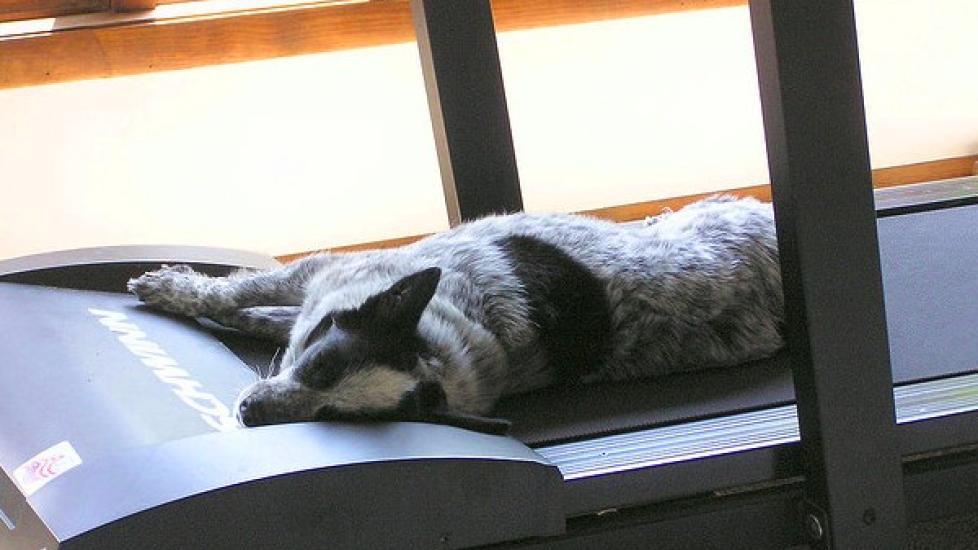Winter Weight Gain - You and Your Pet

It is common for humans to struggle with winter weight gain. Whether the struggle is in preventing it, or losing the weight after the fact, seasonal weight gain is a fact of life for a lot of animals that live in seasonal climates. With the onset of colder temperatures — a time when food items become scarce — activity levels drop, metabolism slows down, and hibernation mode sets in. This is not limited to animals in the wild, however.
Even though we as a culture have devised ways to stay warm and active, and to stockpile plenty of food to get us through the winter months, our bodies still react with the age-old evolutionary methods for preservation. This is as true for humans as it is for our domesticized pets, and therein lies that struggle.
When a dog that is used to getting a daily walk around the neighborhood is now only running outside for speedy breaks, or a cat that is accustomed to a romp around the yard is now reluctant to spend much time outdoors in the cold, it naturally follows that the food that has been consumed is not being burned as energy.
Meanwhile, we are eating more at home, making larger and hardier meals, and stocking leftovers from holiday meals we have attended and made. As today’s pet owners will often include pets in many household activities, we are also sharing our foods with our pets. All of this extra eating without the commensurate physical activity causes our four-legged friends to pack on extra pounds, just as it does to us. So, what can be done to prevent or solve the issue?
Prevention is Key
If your pet is normally active and in good physical shape, create an exercise plan for the winter months so that he or she can continue to be active. This might be games of indoor fetch, a romp through the snow in the backyard, and a brisk hike when the weather allows for it. Just be sure to get out as often as possible so that both your pet and you can work off the excess calories.
If it is too difficult to maintain a regular exercise routine during the coldest months, consider cutting back on calorie intake to compensate for the lowered physical and metabolic activity. Fewer treats with a gradually decreased amount of kibble being fed should cover the difference.
Weight Loss Plans
If your pet is already overweight, a bit more work is going to be required, since you will most likely need to maintain the current weight, even as it is over the ideal. Unless your veterinarian has advised a specific weight loss plan with indoor exercise (i.e., with treadmills), you will need to take care in how much you exercise your pet or decrease your pet’s meal intake. Treats should be eliminated, but food should not be cut back dramatically — again, unless your vet has specifically advised it as a course of action.
Before embarking on any weight loss or exercise plan it is important to have your pet checked for underlying conditions that may be contributing to the weight gain. Only then can you and your veterinarian construct a sensible diet and structured, achievement oriented exercise program.
Monitoring your Pet
If you are concerned about your pet gaining weight during the winter, schedule a visit with your veterinarian before the start of the winter season. Your doctor will record your pet’s weight so that it can be gauged with any further gains or losses.
Ask your veterinarian to show you how to check for certain landmarks signs that your pet is overweight or obese. The ribs and spine are two of the spots on the body that are most likely to indicate abnormal weight gain, when it does occur. If your pet has a history of weight issues, it is also important that you take him or her for a once-a-month weigh-in to make sure the pounds aren’t creeping up and that the current weight is being maintained as needed.
Image source: normanack / via Flickr
